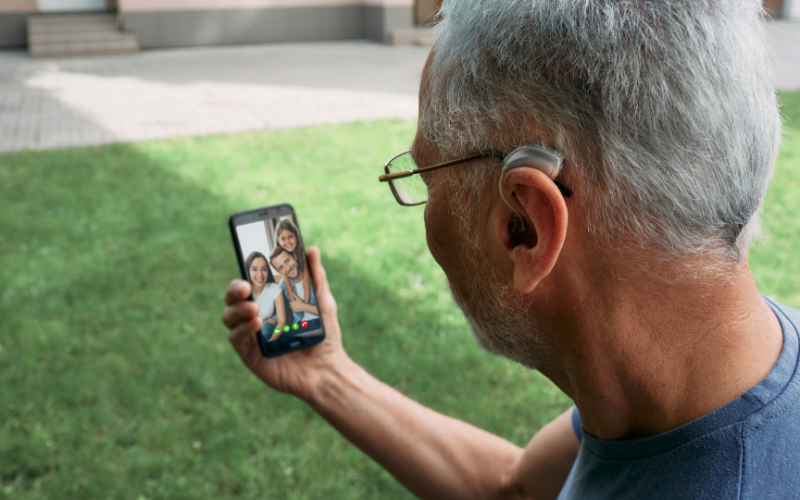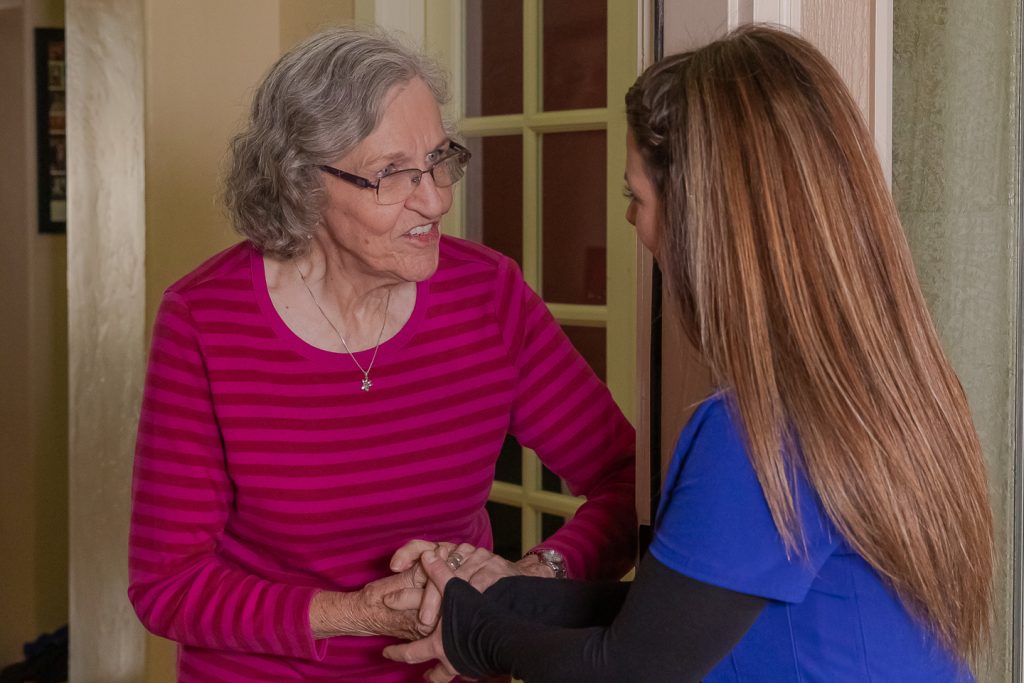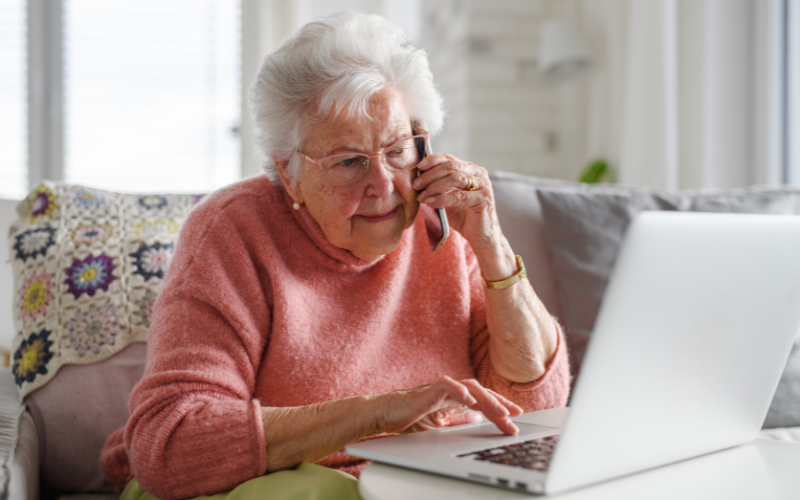
It is common for families to be in a situation where senior parents and their adult children live a significant distance from each other. If the senior parents need some level of care and assistance, the adult children may have a difficult time checking in on them and ensuring that their needs are met.
When adult children live too far away to provide more hands-on care for their loved ones, it can create feelings of tension and uncertainty. Some families may not be comfortable knowing that they can’t be there for their elderly loved ones quickly when they need help. Fortunately, there are some actions you can take to contribute to the care of your loved ones if you live far away which can help improve their quality of life and bring you peace of mind.
Here are eight things you can do if you are taking care of your loved one long-distance:
1. Know Exactly What Your Tasks are as a Long-Distance Caregiver
It is important to know as much as possible about the loved ones you are taking care of. This includes any disease they may be suffering from, medications they are taking, and any resources that may be out there for you to use in case you need them. Learning as much as possible will help you in the long run to prevent additional issues and have a much better idea of their overall condition. When it comes to managing their healthcare, there should be only one person in charge. This will make it easier for the doctor, pharmacy, and all involved. Finally, you should know their financial information in case you need it.
All information should be put in one place, it could be a notebook or a document online that you can get to easily. This information should include anything pertaining to medical care, important contacts, financial issues etc. All caregivers for your loved one should have access to this information and it should always be kept up to date.
2. Make Sure to Plan Visits with Your Loved One
If you feel there is too much to do in the short time of your visit, a good idea would be to figure out ahead of time what they would like to do. If a different family member is the primary caregiver, talk to them about what your loved one needs, as well as what caregiving duties you can help with while you are there. This will help you determine the goal of your visit. It is always good to help with tangible things such as asking yourself if they need new clothes, or if they wish to visit a family member, or they need something fixed around the home. Figure out the main tasks that need to be done and anything else that should be handled during a different visit.
3. Plan Activities When You Visit your Loved One
Always try to make time to do activities that are not related to your caregiving. You can maybe watch a movie, visit other relatives or friends, go to a park or maybe a church, play a game, go to the library etc. Find something that everyone likes, and it can help build family memories. Do keep in mind that the focus of these activities should be your loved one so make sure to keep distractions to a minimum.
4. Stay in Touch with Your Loved One and those Caring for Them
It is important to be involved in phone calls to doctors and nursing facilities (such as their nursing staff) so that you are aware of their health and progress. Also, a social worker from those facilities can give updates and help make the right decision regarding your loved one’s care. If you have a family member in the community, they can also help you get a realistic view about what is going on with your loved one. Make sure you have the phone numbers and emails of your relatives; it is a great way to keep everyone up to date on what your parents need.
5. Help Your Loved One Stay in Touch
You should provide your loved one with a way that they can stay in touch with you. This may require you to have a phone line installed in their nursing home room or getting them a simple cell phone so they can stay in touch. This can also really help with emergencies. However, you may also receive lots of calls and text messages, therefore you should think of an approach to dealing with those. You may want to set times when you can call or figure out a way to set boundaries with phone calls and texts from your loved one.
6. Make Sure All Paperwork is Organized
If you are only able to care for your loved one long-distance, a good way to help them is to organize their paperwork and keep all their info up to date. That includes having access to their personal, health, financial, and legal records. This may be a lot of work in the beginning, but once you have everything there, it will be much easier to care for them. It is crucially important to keep the info about their medical care, finances, ownership, and legal issues up to date so that you know what’s going on and respond to it quickly in case there is an issue.
As you start getting their paperwork together, make sure to get the important items first, and then from there you can fill in the blanks. If there is someone else taking care of your loved one, make sure to speak with them as well if you think they can help you with missing info or with any documents and how to organize everything. You should ensure that any financial issues, such as wills and life insurance policies, are in order. It is also best to have one person with a durable power of attorney to handle financial and property issues.
If your loved one is unsure if they should share their personal info with you, make sure you explain to them that you are trying to help so that you are prepared in case of an emergency. If they are still uncomfortable with you handling their personal, property, or financial info, you should work with an attorney or assign another family member or a friend to handle this information.
7. Learn Additional Info and Tips for Caring for Your Loved One
It can be helpful to complete some caregiver training to help you with your caregiving skills. This type of training can also help you learn how to move someone from a bed to a chair, bathe them, treat bed sores, or provide them with basic first aid. If you are interested in these trainings, you can check online for classes from American Red Cross, or a local non-profit organization. At times, Medicare or Medicaid may help for this training.
8. Check Into Local Resources for Your Loved One
Make sure to check your loved one’s neighborhood for resources that may be helpful to them. Helpful resources include the library, a senior center, and the Area Agency on Aging. Check in locally for any other elder care resources that can help you in the care of your loved one.
Call Assisting Hands for Senior Home Care

Do you need help caring for your loved one? Assisting Hands Home Care – Frisco, Plano & Surrounding Areas can help. We offer a full range of in-home care services for your loved one living in Frisco, TX | Plano, TX | Allen, TX | Little Elm, TX | Prosper, TX and the surrounding areas. Our highly trained caregivers will make sure that your loved one is cared for with great compassion and professionalism. For more information about our home care services and how they can help you care for your loved one, make sure to call us at (214) 609-1340.







